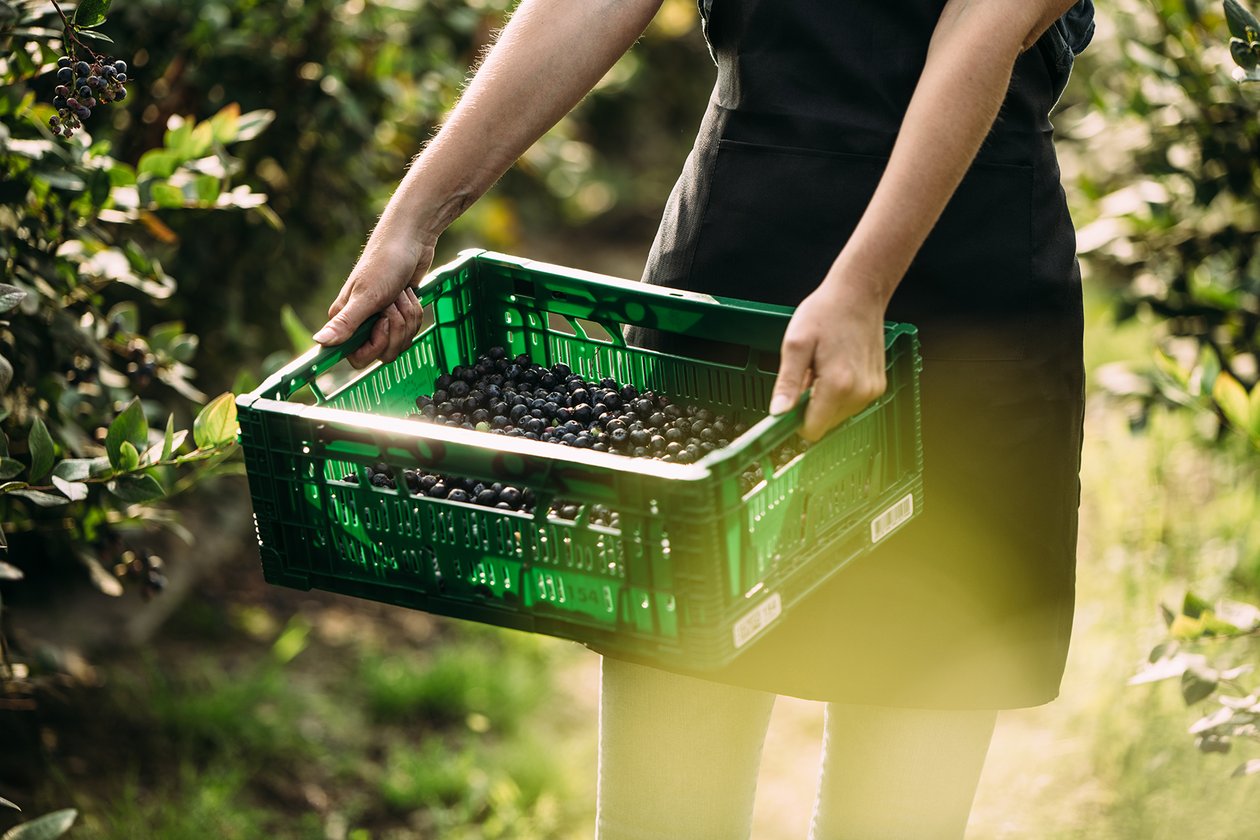How can we improve the sustainability of the European fresh supply chain? Two experts from Euro Pool System share their vision on standardisation of operations, reusable packaging and closer collaboration in logistics and transport.
“The sustainability of the European fresh supply chain has to be increased,” states Dirk Vercammen, regional manager Western Europe from Euro Pool System. “Achieving that aim is perfectly feasible, provided the chain parties cooperate fully.” “This includes exchanging information, increased standardisation of operations and reusable packaging, and closer collaboration in logistics and transport,” adds logistics manager Niels de Goede. “Working together leads to gains in terms of cost reductions in the chain, lower CO2 emissions - and consequently increased sustainability. And the best part is that all stakeholders, from the logistics service provider to the retailer, can contribute and stand to benefit.”
Why is standardising packaging that important?
“Every fruit and vegetable auction used to have its own type of packaging,” explains Vercammen. “But trying to combine different standards in one load makes it impossible to use the available space optimally. You can’t stack as stably either, and processing efficiency is compromised. The introduction of standardised, reusable packaging for the fruit and vegetable auctions in the Netherlands, Belgium and Germany was a revolutionary step. Since then, many European parties have joined this trend. And if you look beyond Europe, there’s progress still to be made in this area. The ideal scenario would be if everyone, from the grower to the retailer, used the same type of reusable packaging.”
“The ideal scenario would be if everyone, from the grower to the retailer, used the same type of reusable packaging.”
Is reusable packaging sustainable?
“Sturdy reusable packaging is more sustainable than single-use packaging”, says De Goede. “Plastic packaging is by far the most sustainable solution for the fresh supply chain. It contributes to the transition from the linear to the circular economy - where resources are not constantly extracted from the earth, but are inserted back into the economy. These trays last for at least ten years and are 100% recyclable. And sustainability isn’t only about reducing the burden on the environment, it also means reducing damage to the produce and less waste. With single-use packaging, about 4% of the produce gets damaged on the way to the consumer. Reusable packaging cuts this figure back to just 0.1%. In addition, this standard packaging is also vital to optimise transport within the chain.”
How can standard packaging help optimise transport?
“Euro Pool System also offers its customers a complete return flow logistics service. Apart from combining, sorting and transporting all reusable trays, we also remove materials such as packaging plastic, pallets, displays and unsold products. The returned trays are washed in the nearest (integrated) service centre. Each tray is washed according to the German DIN standard 522, which guarantees the trays are safe to transport fresh produce. The trays are then sorted by colour and type and are ready to recirculate in the supply chain.”
Which potential benefits can be achieved with transport optimisation?
“One optimisation is reducing the number of empty transport kilometres as much as possible,” explains Vercammen. “Suppliers who have delivered full trays can immediately take empty, clean trays back with them from the retailer’s distribution centre. Integrating the service activities at the customer’s own distribution centre makes this process even more efficient and eliminates the need to transport empty trays between the returns department and the Euro Pool System service centre. Eroski, a Spanish supermarket chain, has succeeded in saving 30% on its transport kilometres by optimising its processes. Those savings are also achieved thanks to the design of the trays, which fold completely.”
“Efficiency gains can be made if everyone in the chain shared more information and worked more closely together.”
What advantages do folding trays offer?
“In the past, rigid and folding trays with 6 cm thick bases were used,” says Vercammen. “When they are empty, rigid trays especially take up a lot of unnecessary space. We have now switched to folding trays with a base thickness of 3 cm allowing more empty trays to be transported per pallet. That naturally has an immense impact on the transport kilometres.”
Which part of the chain can still be optimised?
“In my opinion, efficiency gains can be made if everyone in the chain shared more information and worked more closely together,” believes De Goede. “Thanks to standard packaging, logistics processes throughout the entire chain can be automated. That’s why we continuously invest and innovate in service centres, traceability, automatic order picking and registration of our packaging.”
Is it about increasing sustainability or about saving costs?
“It’s also about saving costs of a distribution centre, for example. A fully automated order picker ensures faster handling, lower lead times and fewer errors. You are guaranteed a faultless, fast and efficient order picking process and can save significantly on labour costs. And the 2D barcode label enables optimal tracking and tracing of trays.”
Vision made into reality
International retailer Kaufland has chosen Euro Pool System as key partner to further realize its sustainability ambitions in the European fresh supply chain. Read more about their increasingly sustainable delivery processes in the case study “Kaufland takes another step away from disposable packaging”
This article was originally written by Petra Lageman, published by Mediaplanet in March 2018.


